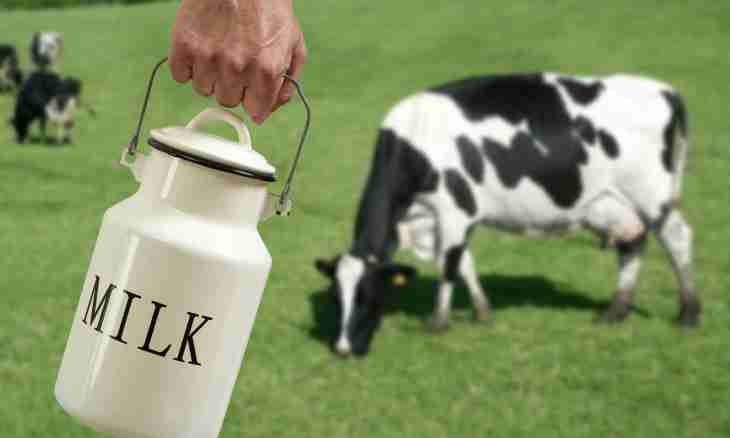Important question of food of children of the second and third year of life is use of cow's milk. According to some scientists, cow's milk can be used safely after 12-month age, and it needs to be given to the child.
According to others, for example specialists of the French society of pediatrics and authors of the National program of food and health care of France, usual cow's milk is not suitable for children of this age therefore it is necessary to recommend application of the modified cow's milk which they call "growth milk" (GM).
What milk it is better to give to the child?
Our opinion is obligatory use in feeding of the kid only of home-made milk, from the dairy automatic machine or from a farm which passing all competitors and intermediaries is delivered directly to you, but does not lie on counters of shops indefinite time. Of course, if the child has no allergy to milk. As showed researches, milk from the dairy automatic machine perfectly remains, and in the course of storage slowly mixes up that gives the chance to stir cream, without shaking up oil.
As it is about discussion of advantages and shortcomings of cow's milk and MR, it is almost impossible to use the principles of evidential medicine, based mainly on results of randomized clinical trials.
Unfortunately, this evidential base is practically not suitable for the majority to those, connected with food. Undoubtedly, it is necessary to provide the evidence obtained in randomized placebos - controlled researches, but it is difficult to conduct such researches with participation of small children, observing all requirements of evidential medicine and the principles of bioethics.
Results of similar researches often lead to the wrong conclusions, especially because of inevitable mistakes. Thus, any research such does not allow to claim that at consumption of cow's milk children from 1 to 3 years have no harmful effects or special dairy mixes and MR do not play an important role because they have no advantages to health.
Today the only way of assessment of the corresponding advantages and risks of two types of milk is assessment of quality of the nutrients received at their application and comparisons with custom consumption of day or with the average daily need for this age group.
The research conducted in France in 2005 showed that children aged from 12 up to 24 months which consumed only cow's milk (360 ± 24 ml/days) and dairy products with cow's milk (156 ± 14 g / e) also did not use neither dairy mixes for babies, nor MR, in comparison with the consumption recommended in France of day, often had the excess level of intake of protein (3-4 times more than safe), with the low content of irreplaceable fatty acids, iron, zinc and vitamins C, D and E.
High percent of these children consumed with food iron (59%), zinc (56%), vitamin C (49%), vitamin E (94%) and vitamin D (100%) in the lowest average daily requirement doses, and linoleic acid (51%) and - linolenic acid (84%) — in minimum allowable limits recommended in France. Application of cow's milk became the reason of such situation.
While the volume of cow's milk and dairy products with cow's milk was for such children of younger age 43% of mass of the food consumed in a day, 35% — from the general energy and 44% — a squirrel, with these products only 17% of linoleic acid, 24% — linolenic acid, 11% — gland, 41% — zinc, 8% — vitamin C, 16% — vitamin E and 24% — vitamin D in day from recommended arrived. The nutrition value in diets on the basis of cow's milk for this age often was insufficient in comparison with necessary consumption.
It is obvious to speak about risks of such food and its delayed consequences, it is necessary to carry out a significant amount of various, including clinical trials.

